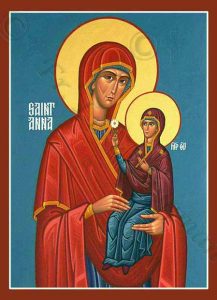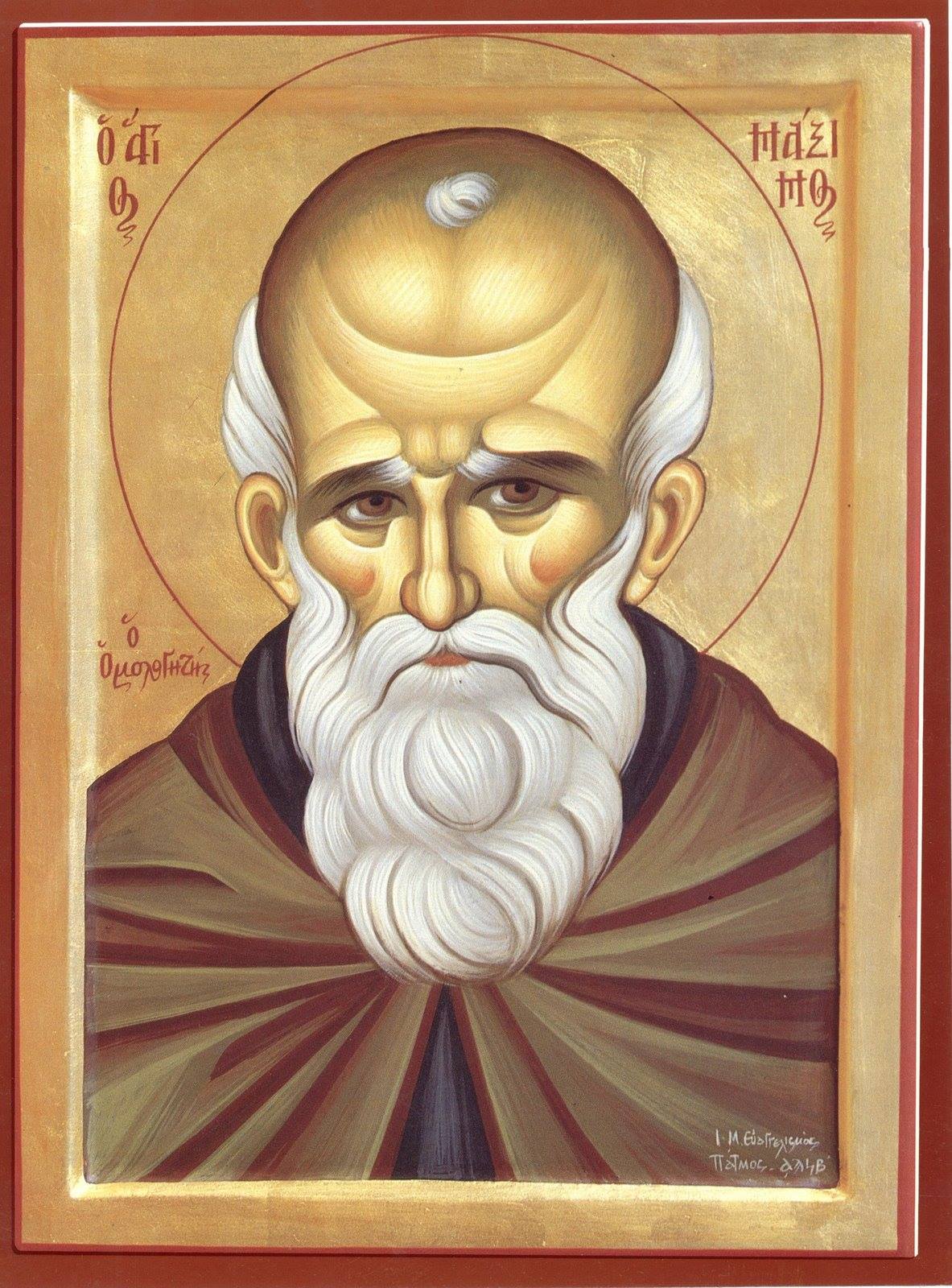 Father John Meyendorff called St. Maximus the Confessor the “Father of Byzantine Theology.” Though he lived long after the Council of Chalcedon, he perhaps drew out the full importance of its confession that Jesus, the Son of God was one in essence with the Father, and yet also united in essence with us in his human nature. Here we see what the gospel stories of Christ’s birth and baptism are truly revealing to us. We call the incarnation, the assumption of the Word of God of human nature, a mystery. This is because we cannot wrap our human minds around this theological reality. To form mental concepts, which we might call “ideologies” are dangerous because they skew the reality. Before Maximus, some theologians put so much emphasis on Christ’s humanity that his divinity was compromised (for example, Arianism or Nestorianism).
Father John Meyendorff called St. Maximus the Confessor the “Father of Byzantine Theology.” Though he lived long after the Council of Chalcedon, he perhaps drew out the full importance of its confession that Jesus, the Son of God was one in essence with the Father, and yet also united in essence with us in his human nature. Here we see what the gospel stories of Christ’s birth and baptism are truly revealing to us. We call the incarnation, the assumption of the Word of God of human nature, a mystery. This is because we cannot wrap our human minds around this theological reality. To form mental concepts, which we might call “ideologies” are dangerous because they skew the reality. Before Maximus, some theologians put so much emphasis on Christ’s humanity that his divinity was compromised (for example, Arianism or Nestorianism).
On the other hand, some put so much weight on his divinity that Jesus ended up as simply God “rattling around” in a human vessel. These tensions still exist today as theological thinkers try to grasp what cannot be grasped and end up with an “incredible” (in the true sense of the word) Christ. St. Maximus taught that the Son of God was a full human being, with a created human soul, human mind and human will. This has practical consequences. If indeed the Word of God is incarnate in a human body and soul, mind and will, with a human genealogy (Mary was of the House of David) and a human history. If indeed he has interacted with us in word and sight (as a human being, we can make an image, “icon” of his appearance), then all that we are and have as human beings enters into a relationship with God that transforms us into sharers of the divine nature.
And so St. Maximus teaches us: “God made us so that we might become ‘partakers of the divine nature’ (2 Peter 1:4) and sharers in His eternity, and so that we might come to be like Him (cf. 1 John 3:2) through deification by grace …. Christianity is an entirely new way of being human.”
Meditation by Archpriest David Petras
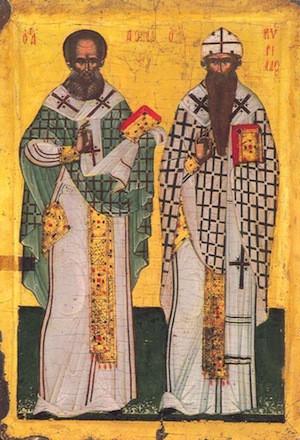 Our Holy Fathers Athanasius and Cyril, Archbishops of Alexandria are honored by the Church today.
Our Holy Fathers Athanasius and Cyril, Archbishops of Alexandria are honored by the Church today.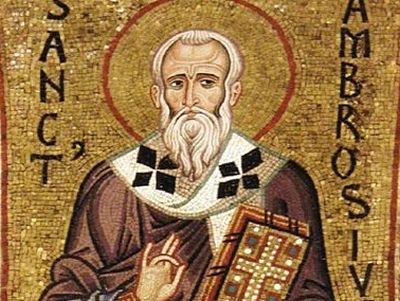 St. Ambrose was the greatest Archbishop of Milan, at a time when it was the center of the Empire. He was elected bishop when he was still a catechumen and proved to be most competent—in administration as well as theology, and was a holy and sincere Christian. He had been a governor before and knew how “to talk to power.” When the Emperor Theodosius had 7,000 Thessalonians slaughtered over the assassination of their governor, he excommunicated him for his horrendous crime – and made it stick, bringing Theodosius to repentance.
St. Ambrose was the greatest Archbishop of Milan, at a time when it was the center of the Empire. He was elected bishop when he was still a catechumen and proved to be most competent—in administration as well as theology, and was a holy and sincere Christian. He had been a governor before and knew how “to talk to power.” When the Emperor Theodosius had 7,000 Thessalonians slaughtered over the assassination of their governor, he excommunicated him for his horrendous crime – and made it stick, bringing Theodosius to repentance.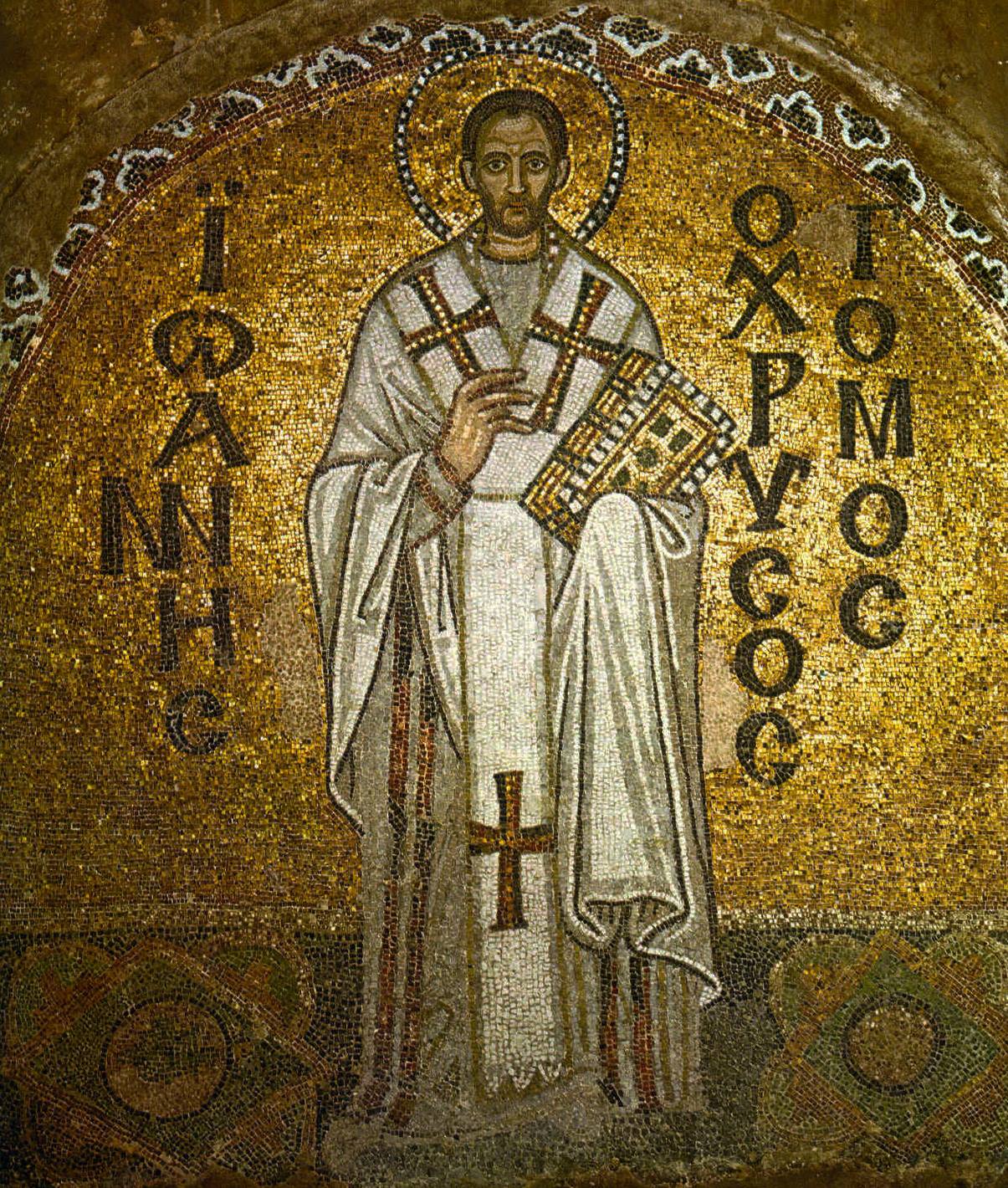 Today is the feast of Our Holy Father, Saint John Chrysostom, Archbishop of Constantinople, whose Divine Liturgy we pray most often. He is one of the most famous saints of both the Greek and the Latin Churches and one of the four great Doctors of the East. He is called “Golden-Tongued” because of his eloquence.
Today is the feast of Our Holy Father, Saint John Chrysostom, Archbishop of Constantinople, whose Divine Liturgy we pray most often. He is one of the most famous saints of both the Greek and the Latin Churches and one of the four great Doctors of the East. He is called “Golden-Tongued” because of his eloquence.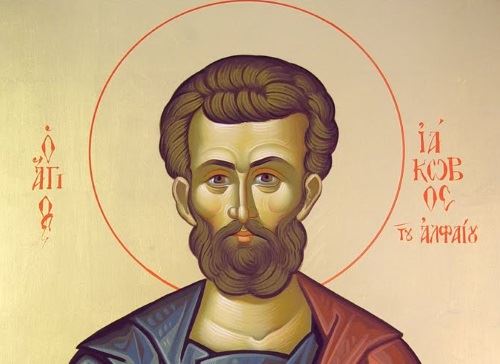 The Byzantine Church discerns three apostles named James: James the Greater, the son of Zebedee; James, the Brother of the Lord and first bishop of Jerusalem; and James, the son of Alphaeus. We celebrate the feast of the latter today. He is the James about which we know the least. The only mention of him was in the lists of the Twelve Apostles. Some speculate that he was the James mentioned by St. Paul in 1 Corinthians 15:7, “After that he appeared to James, then to all the apostles,” but commentators even doubt that was this James, also called “James the Lesser.” However, it does point to the mission of the apostles, which was to proclaim the risen Lord, a message which has resounded throughout the ages to this very day.
The Byzantine Church discerns three apostles named James: James the Greater, the son of Zebedee; James, the Brother of the Lord and first bishop of Jerusalem; and James, the son of Alphaeus. We celebrate the feast of the latter today. He is the James about which we know the least. The only mention of him was in the lists of the Twelve Apostles. Some speculate that he was the James mentioned by St. Paul in 1 Corinthians 15:7, “After that he appeared to James, then to all the apostles,” but commentators even doubt that was this James, also called “James the Lesser.” However, it does point to the mission of the apostles, which was to proclaim the risen Lord, a message which has resounded throughout the ages to this very day.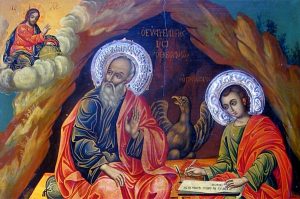 Today, September 26 is the Feast of the Falling Asleep of the Beloved Apostle, John the Evangelist and Theologian
Today, September 26 is the Feast of the Falling Asleep of the Beloved Apostle, John the Evangelist and Theologian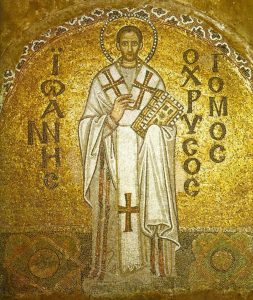 Today, the Church remembers that on September 14, 407, St. John Chrysostom fell asleep in the Lord.
Today, the Church remembers that on September 14, 407, St. John Chrysostom fell asleep in the Lord.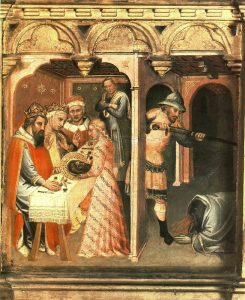 Today is the feast of the beheading of St. John the Forerunner and Baptist.
Today is the feast of the beheading of St. John the Forerunner and Baptist.